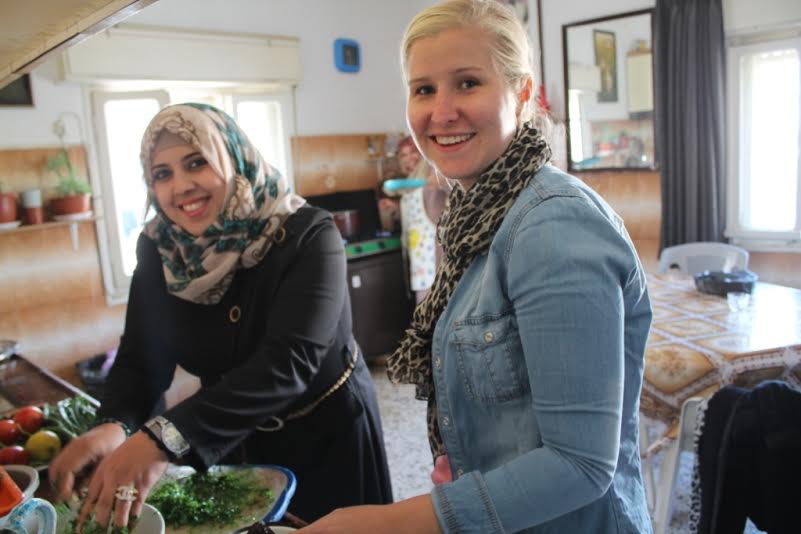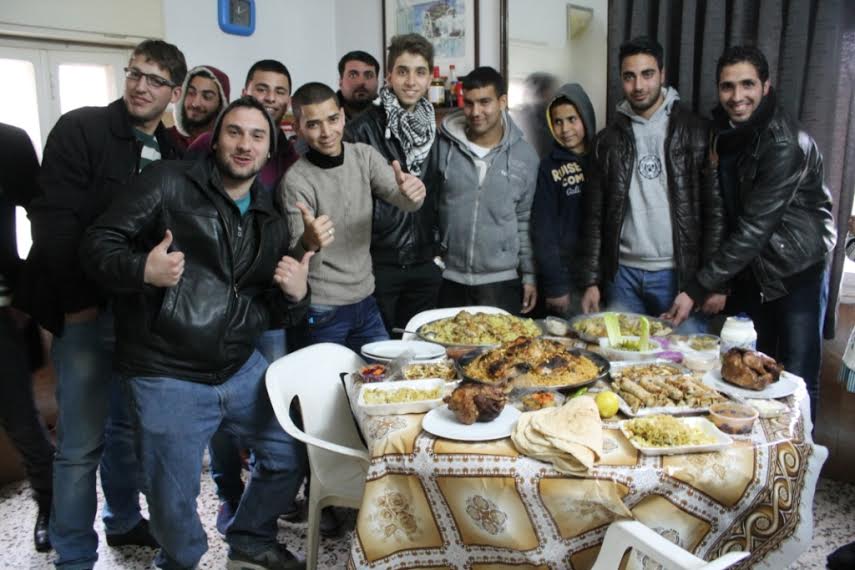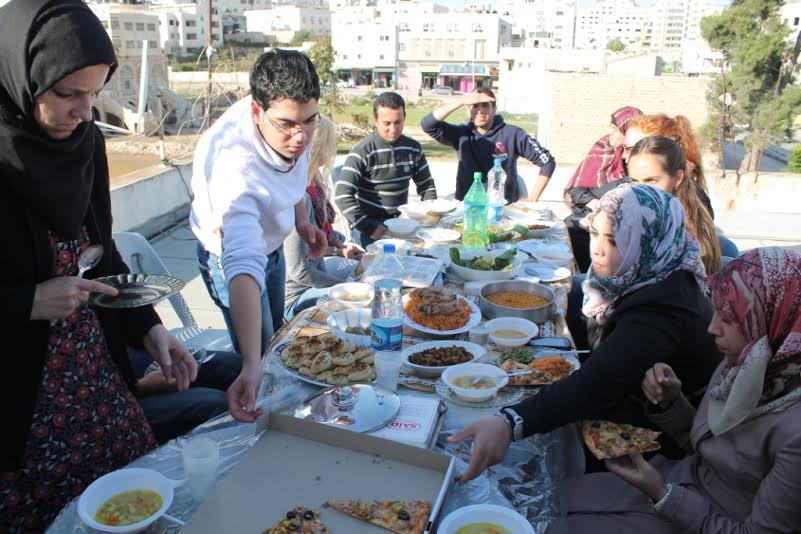Eating Healthy in Palestine : With three-shekel falafel sandwiches, kanafeh and baklava shops on every street, and mini-marts selling chips, soda, and candy it’s easy to fall off your diet in Palestine. These aren’t the only things to eat however. Your diet in Palestine can be as healthy as you want it to be. Here are some tips on how to make smart choices with your meals in Hebron, Palestine 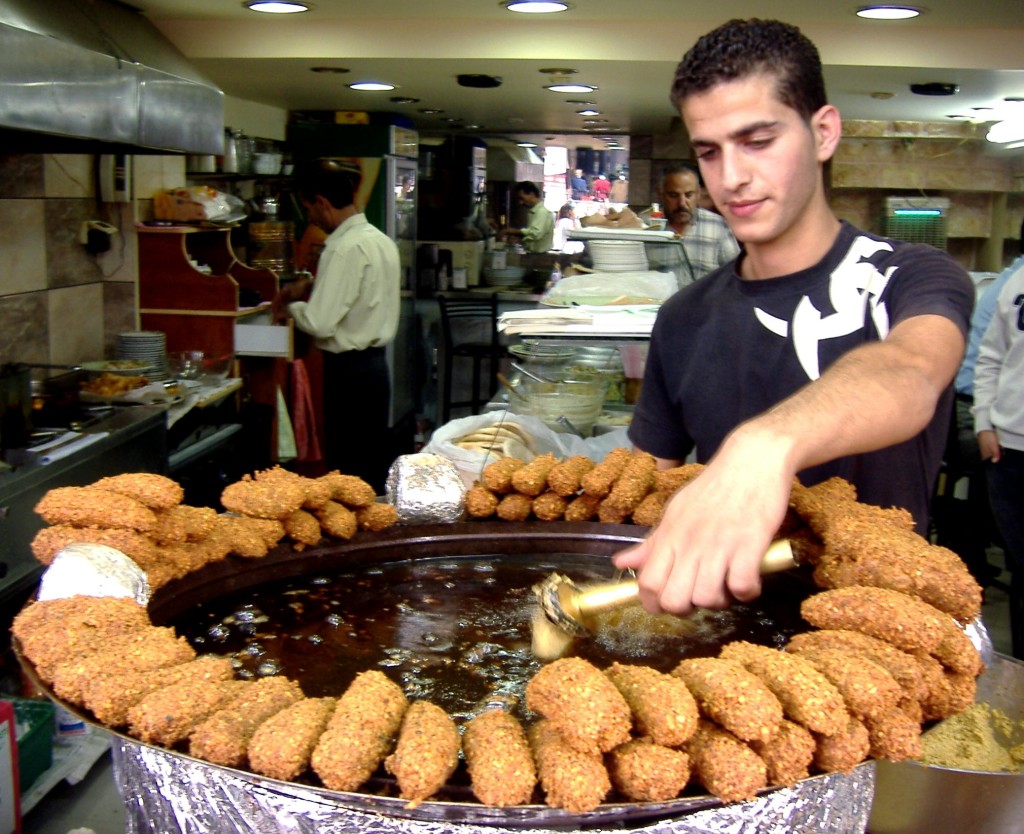
Palestine has historically been a primarily agricultural economy. As such you’ll find that produce markets are especially plentiful with fresh fruits and vegetables. You’ll likely also find that those fruits and vegetables are cheaper than they would be in countries like the USA and the UK where produce has to be shipped from farms overseas. A traditional Palestinian salad consists of tomatoes, cucumbers, and peppers, diced into very small cubes and coated with fresh mint, lemon juice, and salt. Whenever Osama, the manager of the older of the two centers in Hebron, has volunteers over for dinner he chops up potatoes, carrots, tomatoes, and other vegetables and prepares a healthy stew.
Nuts are also plentiful in Hebron. Markets and souqs, but also mini-markets, shelve clear containers of nuts which can be purchased at a very affordable price. Some are more on the indulgent side, like candied pecans and fried peanuts, but others are rich in protein and healthy like peanuts, almonds, and dried chickpeas. Some volunteers purchase a small, healthy lunch of fruit and nuts from the local market every day.
Dips are a stable in Palestinian cuisine. Everyone knows that Arabs love hummus, but there are also other dips, like baba ghanoush made from eggplant, ful made from fava beans, and labneh a dry, sour yoghurt similar to sour cream. Many of these dips are high in protein and heart-healthy fats and are also vegetarian. To save on calories you can choose to eat these dips with sliced carrots or cucumbers rather than the traditional flat bread. All of these dips are sold in refrigerated containers at markets, some, like ful can also be bought canned, and hummus can be bought fresh in a bag from a falafel shop just across the street from the center.
Finally, meat is a necessity for many people. Palestinian cuisine is very meat-heavy, although maintaining a vegetarian diet is possible. Chicken, beef, and lamb are all sold in butcher shops around the city. For cultural and religious reasons, pork is nearly impossible to find in Palestine or Israel, although there is a shop selling fresh pork in the traditionally Christian city of Bethlehem. Shops in the old city and along Ein Sarah Street also sell whole fish of various sizes. In the Western-style supermarket, “Bravo,” down the street from the center you can also find frozen shrimp and mussels along with a deli-meat counter and canned tuna. Eggs are also sold in the market, however some volunteers have noticed that they are usually sold in 25 packs rather than by the dozen, so be sure to share with a friend!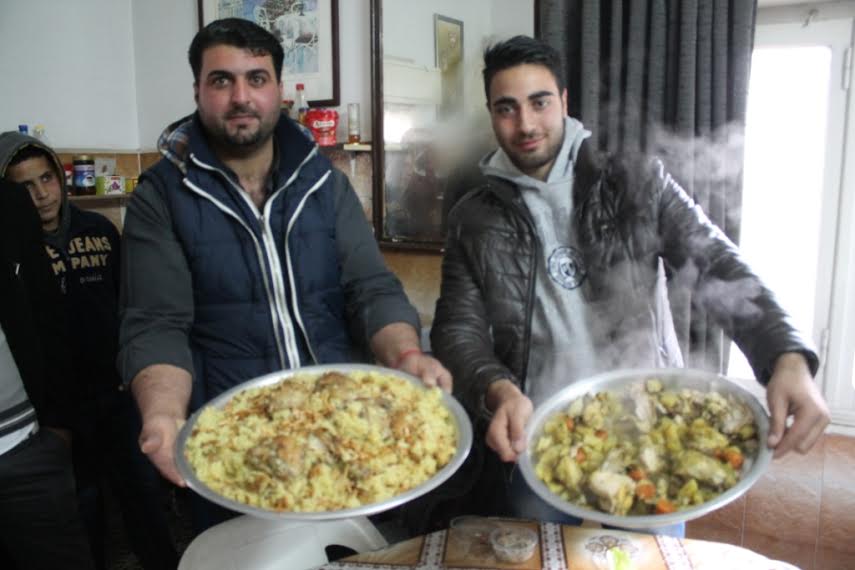
The Excellence Center, the men’s dormitory, and many homestay families are equipped with kitchens. Chris, 24, from Singapore has a flare for cooking. In the past, he has utilized the local markets and prepared cheesy tuna pasta and chicken with Southeast Asian curry for his roommates. Last night he and Osama prepared a meal for some volunteers. While Osama prepared his stew, Chris made mashed potatoes and chicken grilled with Palestinian spices and rosemary.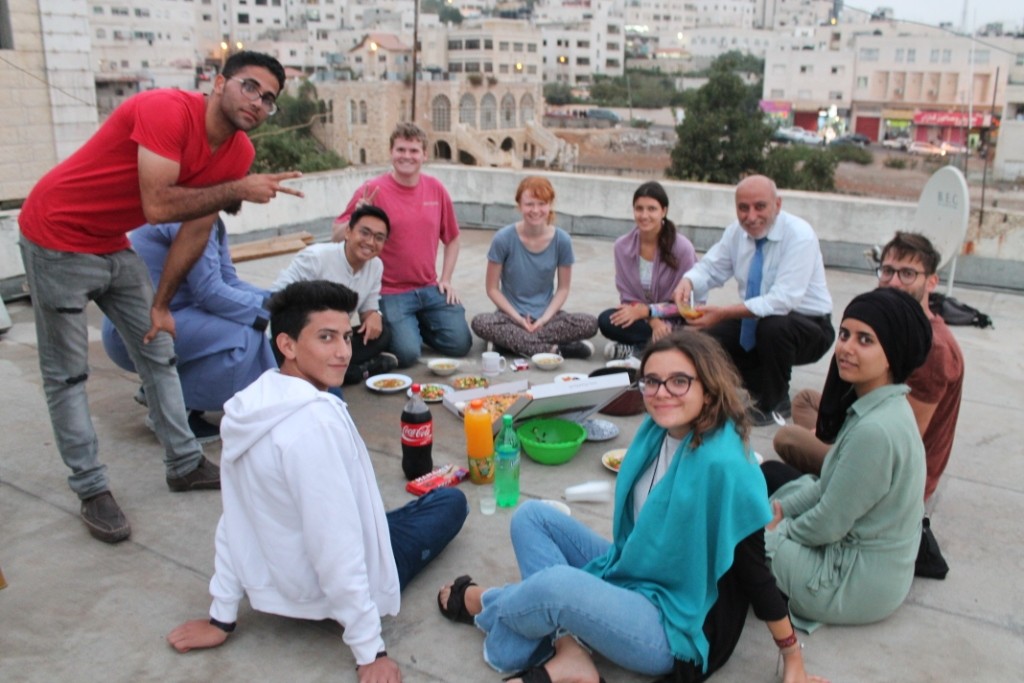
We hope this article has given you a better idea of what types of food are available to you in Palestine. Palestinians are like everyone else, they like to indulge themselves with sweets and fast food, but before that they have to finish their vegetables.
